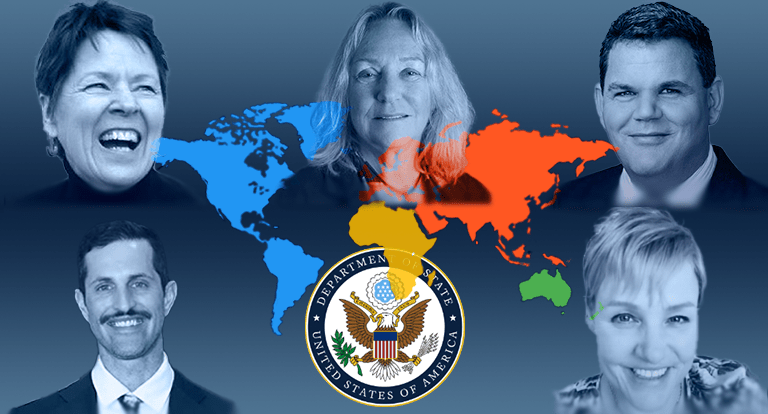The purview of the United States Department of State, more commonly referred to as the State Department, is vast. Broadly responsible for international relations and foreign diplomacy, this executive department was established in 1789 and is headed by the Secretary of State. A successful State Department operation results not only in smoother operations for America but a better image and thus increased safety for its citizens.
As part of its outreach in so-called ‘soft diplomacy,’ loosely defined as efforts to foster relations and build bridges and connections, in contrast to explicit negotiations, the State Department sponsors several programs connected to teaching and learning English around the world. The Office of English Language Programs oversees everything from exchange programs for students and teachers to the Peace Corps, the Fulbright English Teaching Assistant program, the English Language Fellow Program and the English Language Specialist Program. The “voices from the field” heard in this article spoke to me about their experiences with those latter two programs. Currently the English Language Programs are administered through Georgetown University.
“Fellows need to be FAT”
Wendy Asplin worked for eight years as a recruiter in the western states for the English Language Fellows Program. Most Fellows, sometimes referred to as ELFs, are mid-career professionals who are posted to a 10-month position in an educational institution overseas, normally—although not exclusively—at the tertiary level, in a country where the U.S. has a diplomatic presence and a commitment to strengthening ties. A Fellow could be posted in any of over 80 different countries, from Albania to Zimbabwe.
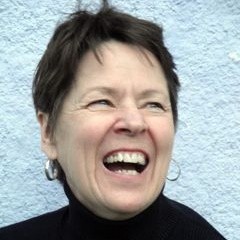
Fellows are also expected to proactively seek out and respond to local needs—anything from curriculum design to sourcing or creating materials to teacher training to extra-curricular activities for students and members of the local community.
“We had a saying,” recalls Asplin, “that Fellows need to be FAT—flexible, adaptable, and tolerant.” After all, these individuals will represent the United States abroad while responding to local needs and conditions. Applicants need to have a relevant MA, teaching experience and a commitment to service and teaching ESL/EFL.
Asplin made a special effort to recruit from less well-represented states in her region, such as Alaska, Montana and Wyoming, to help build a diversified corps of teachers. Asplin notes that recruiters “were really looking to make that population of teachers represent the US. And so we were looking not only for people from all fifty states but also diverse representation.” She explains that they chose candidates carefully because “the whole idea is that it’s a mission to build bridges.” Former Peace Corps volunteers often made successful Fellows, having already proven their ability to adapt to local conditions for an extended period of time. “I used to say, ‘You’re not going to go to Paris, you’re not going to go to Tokyo. You’ll be going to emerging markets.’”
“We had a saying,” recalls Asplin, “that Fellows need to be FAT—flexible, adaptable, and tolerant.”
Although most Fellows complete a 10-month post and then return home, it’s possible to renew, and Asplin recalled one woman who finished eleven different tours. “She was willing to go to hard-to-fill places, too,” Asplin says, including those with lower standards of living and, in some cases, security issues. “That’s a very special kind of person.” Fellows do have the option to turn down an offered assignment and to have their application returned to the pool, in case they’re initially offered a post they don’t feel confident accepting.
In 2019, on the occasion of the 50th anniversary of the English Language Fellow program, Asplin’s work through the University of Washington’s MATESOL program was recognized when she received the English Language Fellow Top Producing Institution Award for preparing the largest number of English Language Fellows, an award given to only five institutions in the U.S.
“I think the experiences are mostly incredibly positive,” Asplin says of the teachers she helped recruit. “People don’t always get their first choice, but they end up doing something that is remarkable. I don’t know if it’s so much about teaching English; it’s something deeper.”
“It changed the trajectory of my life”
A Regional English Language Officer oversees a certain geographical area, and identifies programs, schools and institutions that need assistance in developing programs or improving instruction. Sometimes schools reach out to the Embassy directly; other times the RELO, through in-person visits and contacts with local teachers and administrations, identifies a need. Once a proposal is put together, the RELO selects an appropriate applicant. The RELO then also becomes the Fellow’s point of contact and helps facilitate additional opportunities … and there are always additional opportunities. When RELO Jen McArthur reviewed Beth Baumgartner’s resume, she knew she had a perfect match for some programs on her list.
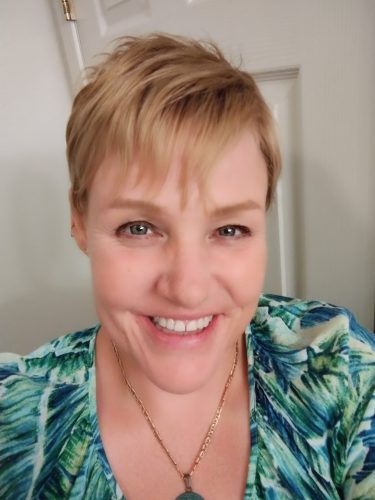
Baumgartner had a unique blend of skills and experience and a K-12 special education license with an ESL endorsement. Although the Fellows program most often places teachers in a university setting, a school in Hungary was looking for a teacher to work with a group of students with physical disabilities. “I was placed in about five minutes,” says Baumgartner, laughing. “It wasn’t typical.”
Although she first heard about the program in 2008, Beth didn’t apply until 2017 – by which time her children were grown, she was newly divorced, and she had her master’s degree. At age 49, she was ready for a change and an adventure, and so she signed up for her first overseas experience.
In addition to teaching a class of children from second grade to the high school level, Beth trained the school’s teachers in teaching special education and then taught workshops around the country. Her students eventually ranged from preschoolers to adults. Among her other contributions were workshops in differentiated instruction to classroom teachers who needed support integrating students with special needs into a mainstream classroom; presentations at the annual conference for EFL teachers in Hungary, Poland, Serbia and Slovenia; a video-exchange project with a class in the United States; a monthly English conversation club for the community; and presentations on American culture and customs.
While financial details vary from program to program, typically the State Department covers the Fellow’s teaching stipend and transportation from the U.S., while the host institution contributes in some way—perhaps providing housing, food, and/or local transportation. Thus, both sides have a buy-in to the success of the endeavor.
The benefits flow both ways. “They were wonderful to me,” recalls Baumgartner. “I made sausage at the headmaster’s house; they invited me for Easter; they gave me a tour of the town. It was a really a cross-cultural exchange.” A highly successful one, too: In 2019, Baumgartner was the recipient of the English Language Fellow Program Cross-Cultural Award from the U.S. State Department of Educational and Cultural Affairs.
“The Hungarian people were extremely kind, very open, and really excited and accepting of what I had to teach. It was a really cool experience, and I’m very grateful I did it. It changed the trajectory of my life.” Baumgartner took two additional teaching jobs overseas after her stint as a Fellow ended, until she was sent back to the U.S. at the beginning of the COVID-19 outbreak. Now teaching ESL in the U.S., she regularly uses the skills she learned and honed during her time in Hungary. “That was the best experience—learning how to do all of those different kinds of things; to be challenged in such a creative way.”
“English is such a huge part of what we do in North Africa”
Adam Sigelman is the Acting Public Affairs Officer at the U.S. Embassy in Algeria, where one of his duties is identifying opportunities for English Language Specialists, who work on shorter-term projects than Fellows. He also collaborates with other U.S. institutions. Currently the State Department is working with Columbia University to provide teacher training in both Tunisia and Algeria. For this project, Columbia applied for a grant from the Embassy after meeting with officials from the Ministry of Education and finding common ground for a teacher training program. There are also numerous local grants to fund English language initiatives.
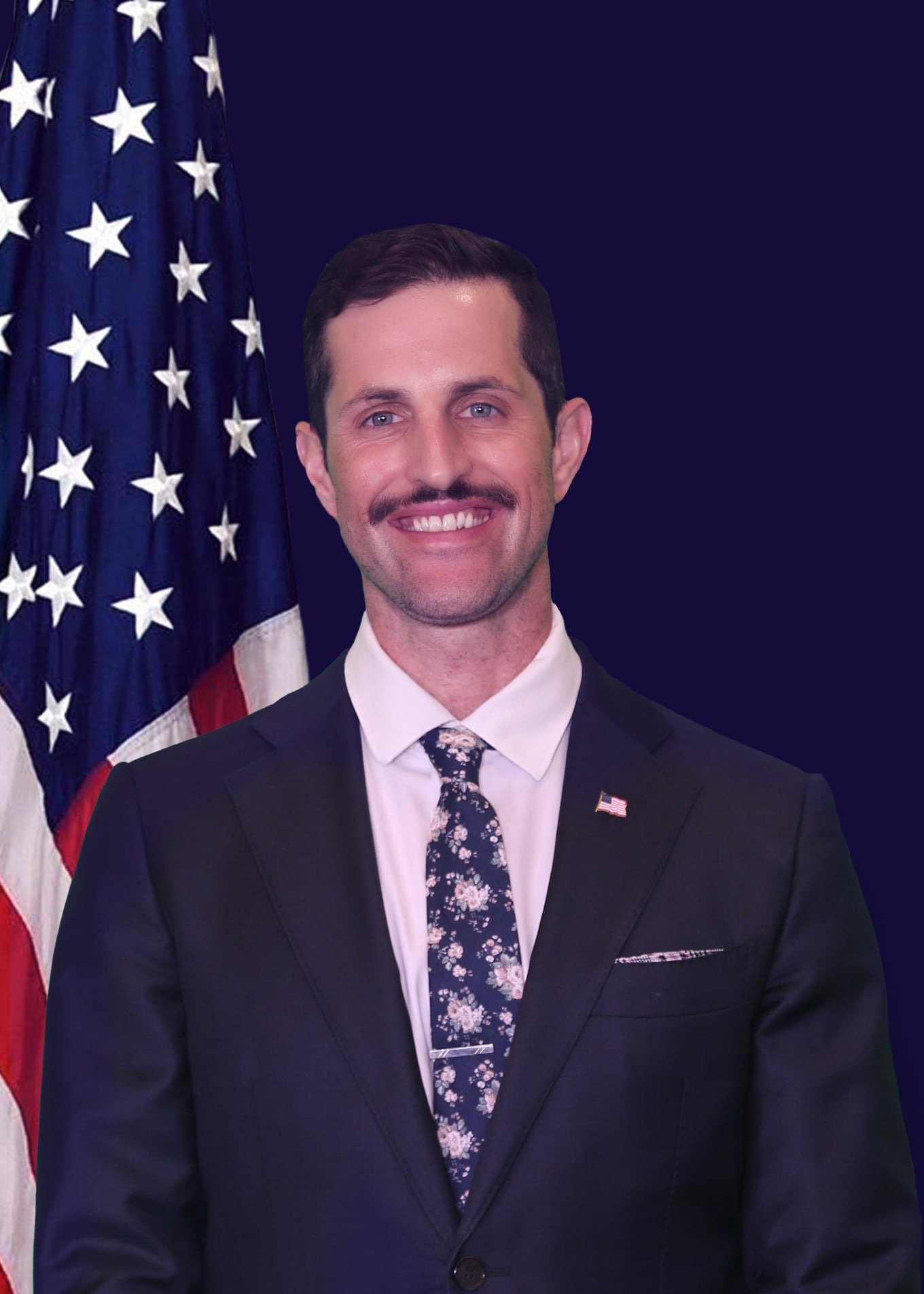
Adam Sigelman, Acting Public Affairs Officer, Algeria
“English is such a huge part of what we do in North Africa,” explains Sigelman. “Just recently we were approached by the tourism training school. They know they need help with their English, and it sounds like it could be a great Specialist project.” The State Department can also be proactive. “Sometimes we see a need for something. For example, we have a $100,000 grant with World Learning to create an organization like a TESOL chapter here in Algeria—because nothing like that exists currently.” In the past year, the Embassy has worked as a partner with the non-profit arm of Berlitz in setting up an English training program for government officials, called Link. Officials from fourteen or fifteen different ministries, realizing the need for English to attend professional conferences and carry out various diplomatic missions, have signed up for the course. “This has been a really nice way for us to gain access to people in those positions,” notes Sigelman. Again, each side benefits from the exchange.
The Access program seeks to give students who might otherwise not be able to attain an education or a job the opportunity to connect with their communities while improving their prospects.
The program Sigelman feels provides “the most bang for the buck” is the Access program, which he helped oversee in Yemen and Israel before moving to Algeria. Short for the “English Access Microscholarship Program,” the mission of Access is to provide English language instruction for the most economically disadvantaged students, exposure to American culture and values, and job skills training. Currently the program runs in over 80 countries and has benefitted over 150,000 students since its founding in 2004. A core component of an Access class is community service. The Access program seeks to give students who might otherwise not be able to attain an education or a job the opportunity to connect with their communities while improving their prospects.
“I’ve seen Access really change the lives of kids,” says Sigelman. “It’s truly remarkable.” As a striking example, he recalls a young boy from a rural area of Yemen, Farea Al-Muslimi. His father was a goat herder who heard about the Access program and moved to Sana’a, the capital, two and a half hours away, just so his son could join the program.
After his time in the Access program, Al-Muslimi got a scholarship through the U.S. Embassy for a year of study in the United States, followed by a scholarship for further study from the U.S.-Middle East Partner Initiative (MEPI). In 2017, Al-Muslimi completed a master’s degree in Public Policy & International Affairs at the American University of Beirut, and since then has written numerous articles in the areas of conflict resolution and Middle Eastern affairs. He now works at Chatham House, an independent policy institute.
“She speaks the truth”
Training teachers in the Access program is a common assignment for Specialists, who work on teacher training and curriculum development as well as provide information about American culture and values.
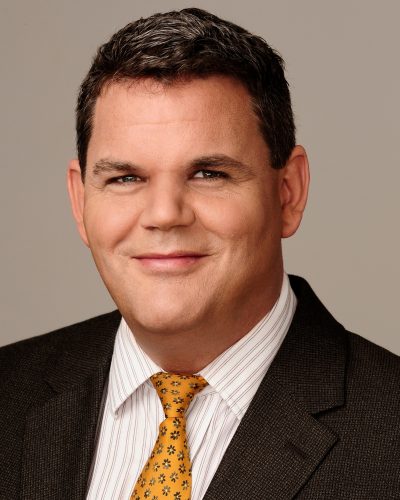
David Bohlke, English Language Specialist
“Access was my favorite program,” says David Bohlke, who has worked with Access programs in several countries. His first time was at an Access summer camp in Pakistan, run by a Pakistani NGO with a grant from the State Department. Together with another specialist, he spent two weeks training “I don’t even know how many teachers,” Bohlke says with a laugh. “Hundreds and hundreds.” They had posters and presentations from students to demonstrate what they were learning and with which service projects they were involved. Bohlke returned to Pakistan to work with the Access program several more times, noting that the last time he was there, the program included over 7,000 students, making it possibly the largest Access program in the world. “Pakistan is a perfect country for Access,” says Bohlke. “They’re so smart. They work hard. They respect education. If they aren’t from wealthy families, the way to get ahead is through education, and the kids know that, so they grasp opportunities and make the most of them. It’s really rewarding to work with that kind of student.”
In Basra, Iraq, where it was difficult for safety and security reasons for a Specialist to leave the military base, Access students were once brought into the base to work with Bohlke there. “It was a remarkable experience,” reminisces Bohlke. “These young, bright kids … It’s like the future. You can just see it in their faces.”
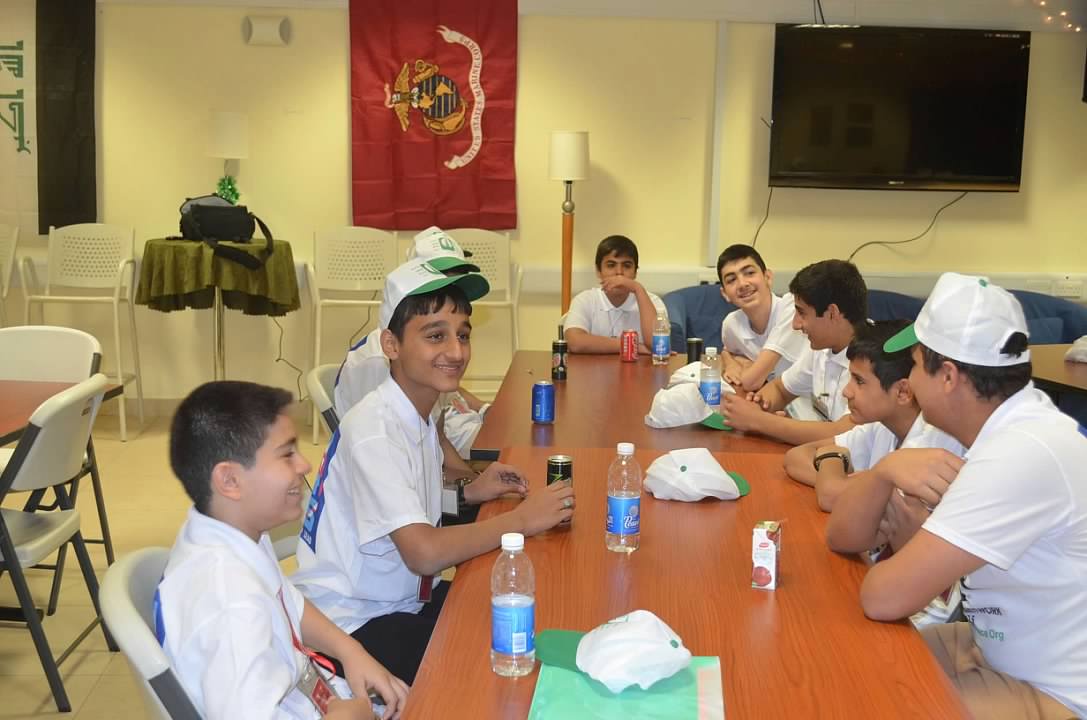
Bohlke is a Specialist who would go anywhere—and did. Asked to list the countries he’s worked in, he has to stop and think. “Libya twice, Afghanistan twice, India I think four times, Nepal, Iraq three times, Niger three times, Senegal three times, Mali once, Togo twice, Mauritania, Qatar twice, Bahrain, Saudi Arabia, Chad ….”
I ask him for an experience that still makes him smile, and he mentions Mauritania, where on one occasion he gave a workshop on learning English and culture through popular music. One song he used was Dolly Parton’s “Coat of Many Colors.” Although he built a lesson on vocabulary around the lyrics, he also knew that the values of the song were likely to resonate with people who understand the importance of being rich in love and family, rather than money. “I had grown men crying,” recalls Bohlke. “They were really moved by the lyrics. ‘She speaks the truth!’ They totally got it. Themes like that are universal.” Later Bohlke was presented with a going-away card on which one participant had written: “Thank you, Mr. David, for bringing Dolly Parton to Mauritania.”
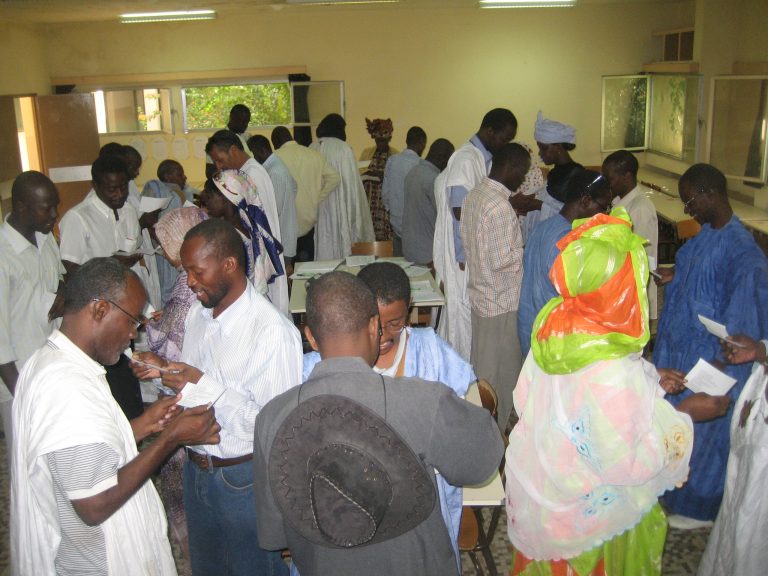
“We’re not in Kansas anymore”
Donna Brinton was recognized in 2020, the 30-year anniversary of the Specialist program, as one of their top 30 trainers. She has conducted teacher training for Access programs all over South America, the Middle East, Uzbekistan and Thailand, with a goal of giving teachers more interactive techniques that they can use to connect with students as well as providing cultural enrichment activities. One workshop, popular with both teachers and students, looked at new language has entered colloquial English through classic and popular movies. She plays clips from a film, discusses the meaning of new words and phrases, and then gives copious examples of how the phrases are commonly used in contemporary life.
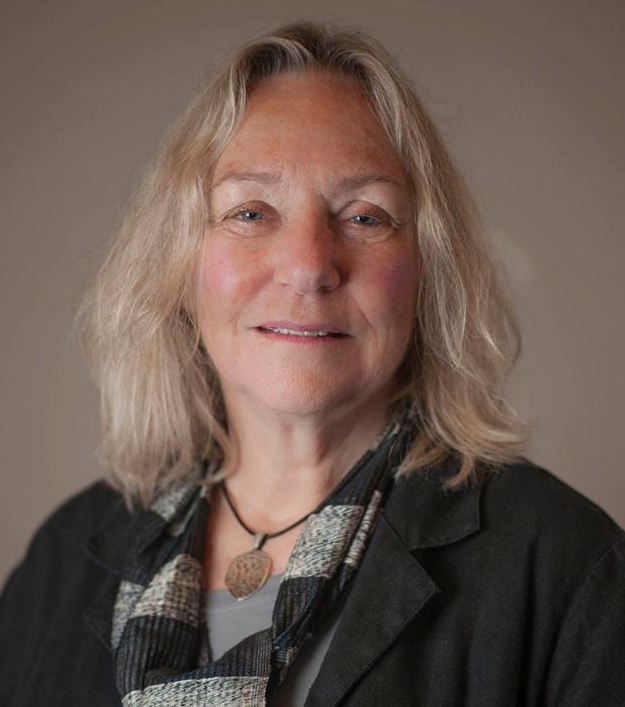
Brinton is a perfect example of the “F” of Asplin’s FAT teacher trainer: flexible. She recalls her first time working in Afghanistan. A local teacher said, “You have a free day coming up—what I do on my free days is go to the orphanages nearby. Would you like to come with me?” After Brinton agreed, she learned that both orphanages were Access sites, so she was not only given the opportunity to observe local teachers conducting Access classes but found herself invited to teach a class herself. “You can’t say no,” says Brinton with a smile. “So, I spent the evening in my bunker, cutting up magazines and creating flashcards to accompany a “Who/What/Where” activity. “It was a huge hit,” says Brinton. “But here’s the thing that tore my heart out. At one orphanage, the teacher said, ‘Would you like to see our library?’ We went upstairs to a room that housed a TV with a VCR—with one videotape—and he pointed to the entire collection of two books: one aging ESL textbook and Birds of North America, the latter was particularly well loved because of the illustrations.
When Brinton returned to the US, she contacted a friend with an online bookselling business. “She said, ‘Donna, I have hundreds of children’s books that I can’t sell because most American parents prefer to buy new books. I would happily donate those books to you.’” All told, she donated forty boxes of books, which Brinton shipped to the orphanages via the US Embassy. The orphanages in return sent photos of the children opening the boxes. On subsequent trips to Afghanistan, Brinton was not able to leave the Embassy compound, and so participants came to her there for training.
Brinton also appreciates programs that involve multiple contacts; she cites one in Uzbekistan that comprised six separate visits. As a cooperative program between the State Department and UCLA, they were also able to bring a cohort of Uzbek teachers to UCLA for three weeks. Brinton organized contacts at UCLA to teach short courses, and she arranged field trips and outings. “Programs like that have a lasting impact, culturally as well as educationally.”
When Brinton first informed the Uzbek teachers that they would be visiting UCLA in the summer, she was surprised by the relative lack of reaction; she had expected that they would be thrilled. Later, she gave them some preparation materials inside UCLA folders, which had a map on the back. The teachers looked the map and asked, “Is this your city?” No, explained Brinton, it was a map of UCLA. Still no reaction. “And then I thought … I said, ‘The University of California at Los Angeles.’” The acronym so well known in the Unites States hadn’t registered with people in Uzbekistan. Then the excitement came. “From the moment they landed to the moment we got them back on the plane to go home, it was just non-stop eye-opening experiences. It was the first time they’d seen the ocean, for example. They went boogie boarding!”
Online—for now
The COVID-19 outbreak has temporarily put a halt to in-country visits, but the English Language Programs continue online. The year 2020 resulted in a 3,000% increase in virtual programming. However, in many countries, this provided a much-needed incentive to integrate distance learning into their regular programs, and after the COVID-19 threat has receded, those benefits will remain.
Some of the most successful foreign aid is that which teaches skills and provides genuine opportunities—teaching someone to fish rather than giving them a fish, as the saying goes. The various initiatives of the Office of English Language Programs aim to do just that, while at the same time raising global understanding of American culture and values and integrating American educators into local communities, so that the teaching and learning is truly an exchange.






